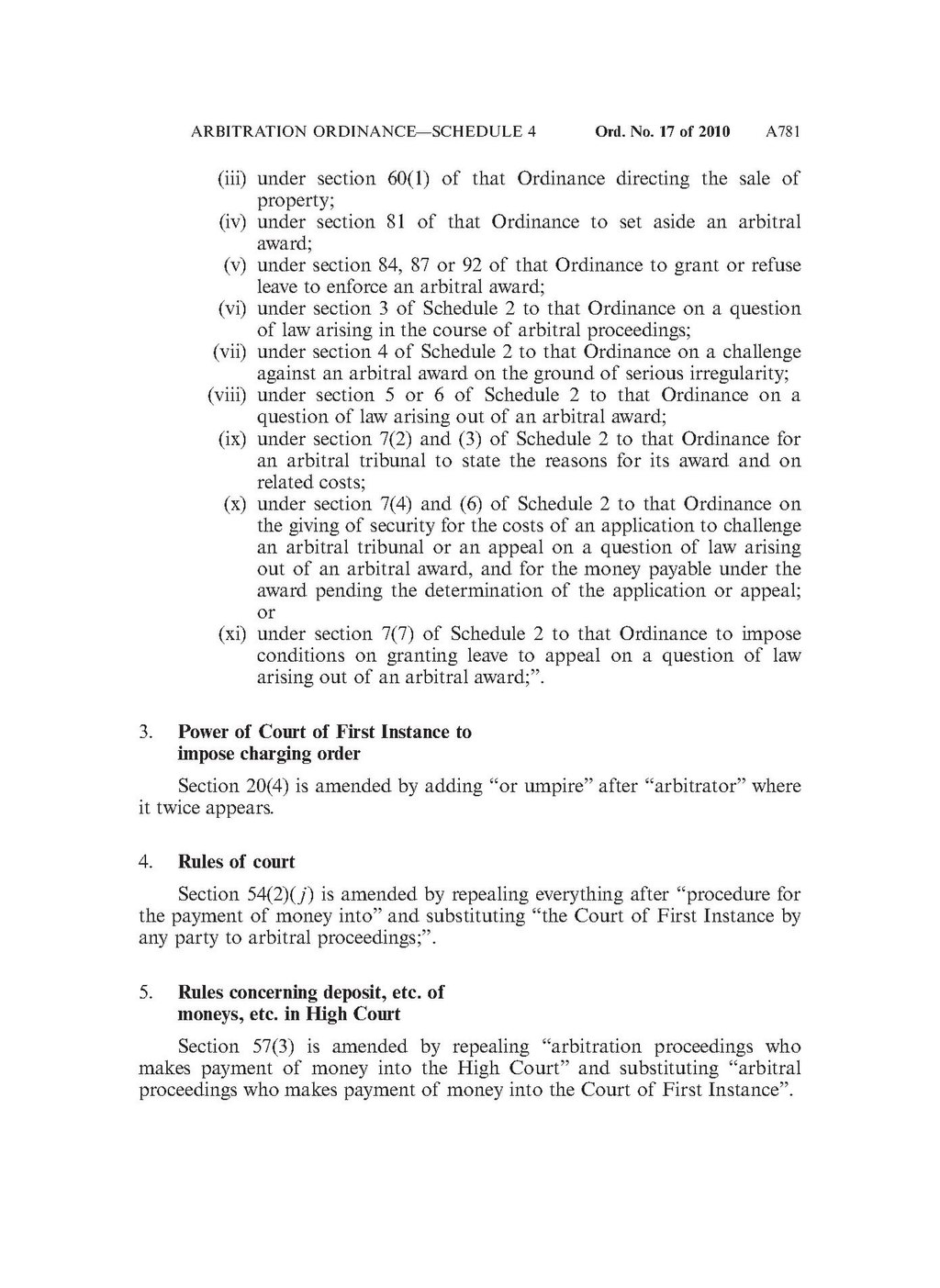ARBITRATION ORDINANCE—SCHEDULE 4
Ord. No. 17 of 2010
A781
- (iii) under section 60(1) of that Ordinance directing the sale of property;
- (iv) under section 81 of that Ordinance to set aside an arbitral award;
- (v) under section 84, 87 or 92 of that Ordinance to grant or refuse leave to enforce an arbitral award;
- (vi) under section 3 of Schedule 2 to that Ordinance on a question of law arising in the course of arbitral proceedings;
- (vii) under section 4 of Schedule 2 to that Ordinance on a challenge against an arbitral award on the ground of serious irregularity;
- (viii) under section 5 or 6 of Schedule 2 to that Ordinance on a question of law arising out of an arbitral award;
- (ix) under section 7(2) and (3) of Schedule 2 to that Ordinance for an arbitral tribunal to state the reasons for its award and on related costs;
- (x) under section 7(4) and (6) of Schedule 2 to that Ordinance on the giving of security for the costs of an application to challenge an arbitral tribunal or an appeal on a question of law arising out of an arbitral award, and for the money payable under the award pending the determination of the application or appeal; or
- (xi) under section 7(7) of Schedule 2 to that Ordinance to impose conditions on granting leave to appeal on a question of law arising out of an arbitral award;”.
3. Power of Court of First Instance to impose charging order
Section 20(4) is amended by adding “or umpire” after “arbitrator” where it twice appears.
4. Rules of court
Section 54(2)(j) is amended by repealing everything after “procedure for the payment of money into” and substituting “the Court of First Instance by any party to arbitral proceedings;”.
5. Rules concerning deposit, etc. of moneys, etc. in High Court
Section 57(3) is amended by repealing “arbitration proceedings who makes payment of money into the High Court” and substituting “arbitral proceedings who makes payment of money into the Court of First Instance”.
